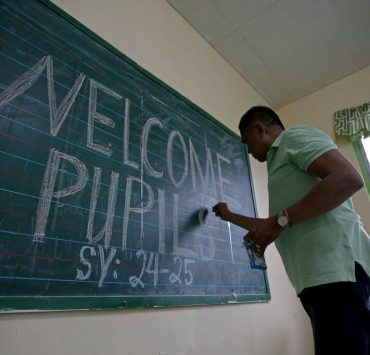Skills are the currency of the labor market

The world of work is fast transforming: in the manufacturing plants in the eco zones, in the home-based handicraft per-piece entreps, in the farms, in the construction sites.
Driven by the globalized trend in organizing work and the progressive acceptance of the benefit of technology and automation and predictably, more artificial intelligence, leads to more innovation and transformation in work structures. Against this backdrop, an agile workforce is essential to roll over to the requirements of the rapidly changing technologies through timely skilling, reskilling, and upskilling.
The Philippine Constructors Association (PCA), cognizant of the essentiality of skilled workers to competitiveness in the Philippine, and the Association of Southeast Asian Nations, is intent to drive the expansion of the construction workers supply along modernization of technologies and the upskilling and reskilling in areas that have been affected by innovations, specially in the wider utilization of equipment and in enhancing the productivity of the workforce.
Officers of the organization and technology experts from the member companies are intent on reviewing the competencies map for all current skills areas to keep pace with the industry requirements, both at the entry level and in the upskilling and reskilling levels. The review is conducted together with the technical specialists of the Technical Education and Skills Development Authority (Tesda) which is mandated to issue the competency standards as recommended by industry.
Enterprise-based training (EBT) or skills development programs led by industry have always been acknowledged as relevant to the requirements of the workplace. This mode of training provides the required knowledge, theories and principles, and their application to the practice of the job.
The participating enterprise or group of enterprises, on the other hand, are able to observe the abilities of the trainees and are able to recruit the best trainees. The Toyota Motors Philippines School of Technology, the Fast Logistics Learning and Development Center, and the Monark Foundation Inc. are EBT institutions that carry the human resource development vision of their parent companies.
The newly released study of the Philippine Institute for Development Studies: “An Assessment of the Enterprise-based Training Modality in the Philippines” listed the accomplishment of EBT from 2019 to 2022 and quoted the EBT training targets in the National Technical Education and Skills Development Plan (NTESDP) 2023 to 2028. On the baseline of 79,100 graduates, the NTESDP expects to expand the baseline to 5 percent per year (except for 2024 projecting the expansion to 20 percent).
The number of EBT programs is expected to expand proportionately. EBT graduates account for an annual average of 3.9 percent of total Technical-Vocational Education and Training (TVET) graduates for the period 2013 to 2022. The study cited several barriers and disincentives to EBT, among others the operational and technical capacity of EBT stakeholders: 1) financial constraints of enterprises and partner technical-vocational institutions, 2) quantity and quality of trainers and assessors, 3) design and the development of EBT programs, and 4) mechanisms on industry involvement.
The Second Congressional Commission on Education (EdCom II) Year 1 Report presents, among others, the changing demographics of TVET participants. Citing Tesda data, the educational attainment of TVET graduates before entering TVET has shifted from 50 percent high school graduates in 2012 to 25 percent in 2018. College graduates were 34 percent in 2018 from 13 percent in 2012. College undergraduates were 27 percent in 2018 from 19 percent in 2012. These data suggest a growing demand for skilling for relevance to the current labor market needs.
Legislative efforts have been in place in support of EBT. House Bill No. 7400 entitled An Act Institutionalizing an Enterprise-based Education and Training Program to Strengthen TVET has been passed in plenary deliberations. Just recently, the Senate passed on the third reading of Senate Bill No. 2587 also known as the Enterprise-Based Education and Training (EBET) Framework bill. Both bills refer to EBET as TVET programs delivered within an enterprise which may be in-plant or linked with a training provider.
As the landscape of work continues to evolve, EBT is becoming a vital tool for bridging the gap between educational attainment and industry demands, ensuring that our workforce is competitive and flexible. With legislative support and initiatives by organizations and industries, the future of skills development in the Philippines will equip our workers with the tools they need to thrive in a rapidly changing world.
—————-
Secretary Irene Isaac is former director general of Tesda. She is a member of the advisory council for TVET and Lifelong Learning of EdCom II.

















